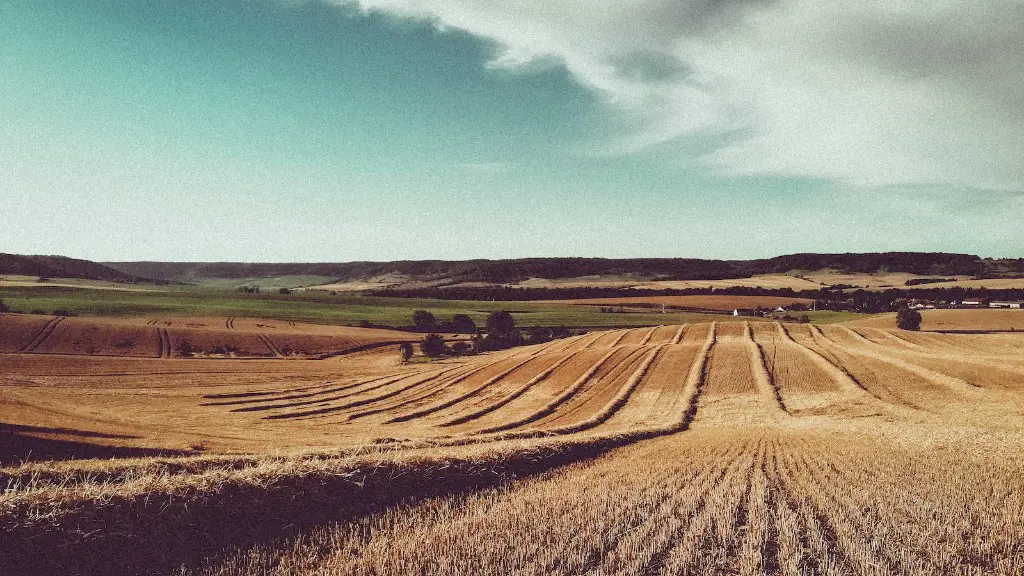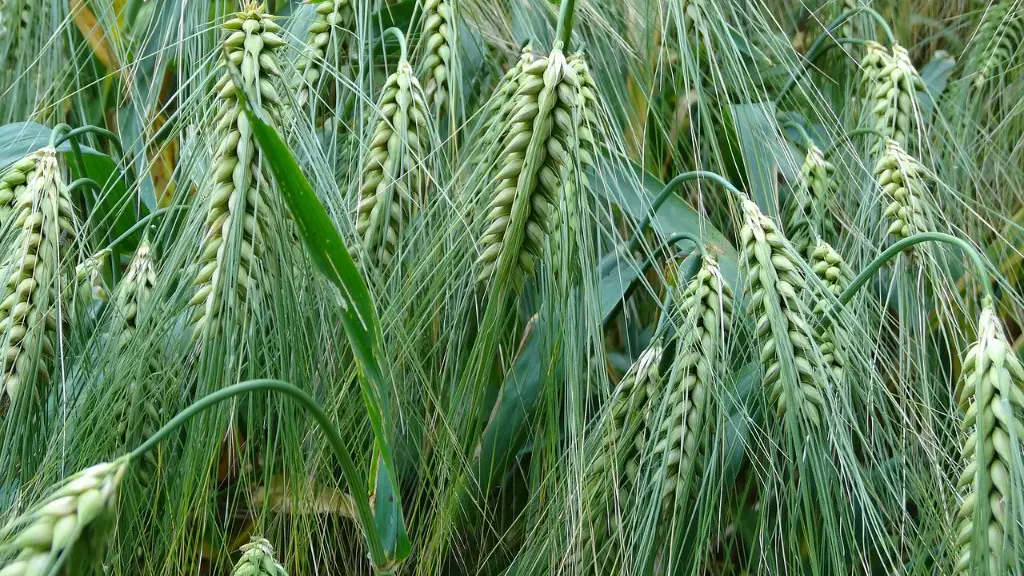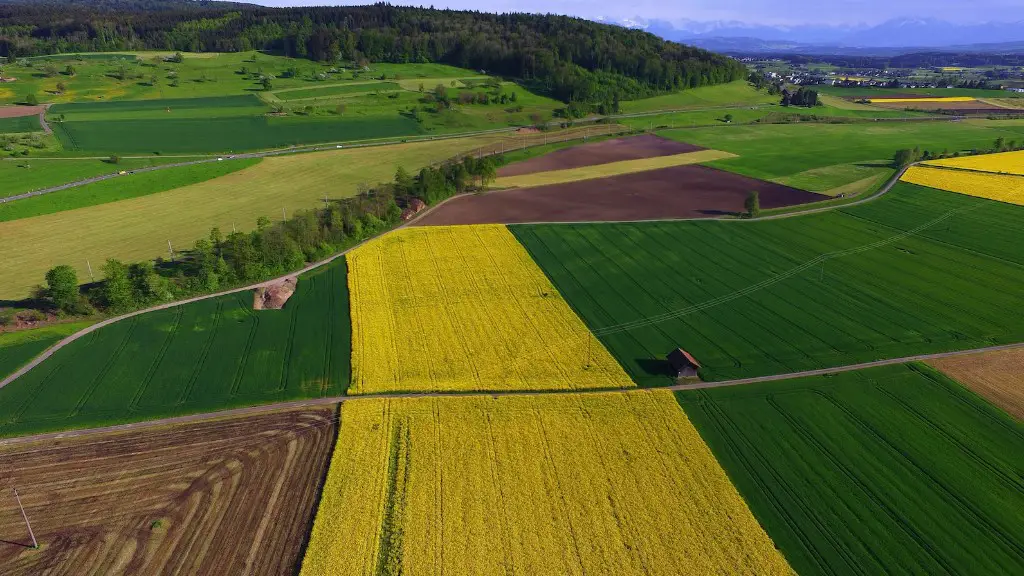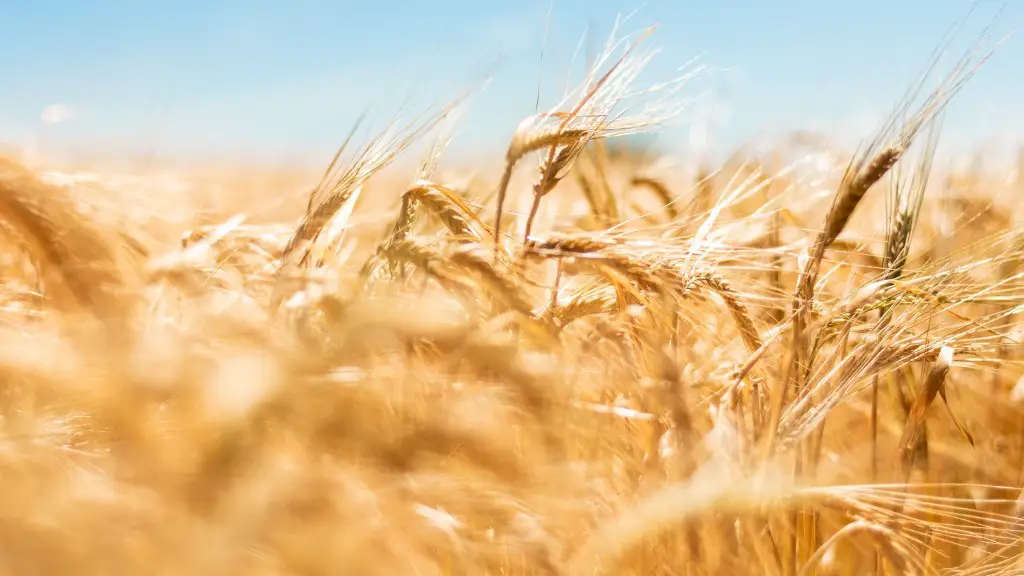An increase in capital in the agricultural sector has been linked with higher incomes and improved standards of living for rural households. Capital refers to the financial resources available to a farm or farm household, including savings, credit, and other forms of financial assets. It also includes physical assets such as land, buildings, livestock, and equipment.
In agriculture, capital is important because it provides the resources needed to purchase inputs, finance investments, and cover operating costs. Capital can also be used to smooth out fluctuations in income and help manage risk.
There is a large body of evidence that demonstrates the positive impact of capital on agricultural productivity and incomes. For example, a study from Ghana found that every 10 percent increase in capital was associated with a 2.5 percent increase in farm productivity.
Other studies have shown that capital-intensive farming practices are associated with higher incomes for smallholder farmers. In one study from Ethiopia, smallholders who used animal traction (a form of mechanization) earned 34 percent more than those who did not.
So, capital is important for agriculture because it can lead to higher incomes and improved standards of living for rural households. In addition, capital can help farmers to be more productive and to better manage risk.
Capital is important in agriculture because it is used to finance the purchase of land, farm buildings, and equipment. It is also used to finance operating costs such as seed, fertilizer, and labor. In addition, capital is used to finance the development of new technology and the adoption of new production practices.
What is the importance of capital in agricultural production?
Capital formation through investment in agriculture helps in improving the stock of equipment, tools and productivity of natural resources, which, in turn, enables the farmers to use their resources, particularly land and labour, more productively. This, in turn, leads to increased agricultural production and productivity, which is beneficial for the economy as a whole.
Capital refers to the funds that a company uses to pay for the ongoing production of goods and services to create profit. Companies use their capital to invest in all kinds of things to create value, including labor and building expansions.
What is capital in agricultural production
The capital employed in farming is traditionally defined as the difference between the sale value of an operating farm and the sale value of the land in its natural state. This definition reflects the fact that farmers typically purchase land and then make improvements to it, such as by clearing it, tilling it, and erecting buildings. The sale value of the farm, then, includes not only the value of the land but also the value of the farmer’s labor and investment.
Agriculture Capital is an investment firm that specializes in regenerative agriculture and food production. The company currently manages two investment funds, which are used to finance permanent cropland and midstream assets. This vertically integrated enterprise grows, packs, and markets high-value produce.
How is capital important in economic development?
Capital is the most important factor of production particularly in a developing economy. Capital formation is defined as that part of country’s current output and imports which is not consumed or exported during the accounting period, but is set aside as an addition to its stock of capital goods. It is very important for a developing economy to have a strong capital base as it is essential for economic growth and development. A strong capital base enables a country to invest in key areas such as infrastructure, education and health, which are all critical for development. Therefore, it is clear that capital formation is a key driver of economic growth and development in a developing economy.
There are two (2) major types of capital:
1. Fixed Capital
Fixed capital includes physical assets of the agricultural business such as land and building, furniture and fittings, equipments and tools, machineries, etc.
2. Current Capital
Current capital is also known as working capital. It includes money or assets that are used to generate revenue on a daily basis, such as inventory, raw materials, etc.
What is the role of capital in production?
Capital refers to the machinery, tools and buildings used by humans to produce goods and services. Capital refers to anything that provides financial or economic assets for investments. Common examples of capital include cash, stocks, bonds, and real estate.
An increase in the physical capital stock (i.e., more factories, machines, etc.) leads to an increase in the economy’s overall productive capacity. With more productive capacity, businesses can produce more goods and services without needing to hire more labor or use more resources. This boost to productive capacity can lead to higher economic growth in the long run.
How does capital influence the growth of industry
Additional or improved capital goods is intended to increase labor productivity by making companies more productive and efficient. Newer equipment or factories leads to more products being produced, and at a faster rate. This in turn can lead to higher wages for workers and more profits for businesses. It can also help to reduce unemployment as companies expand their businesses and hire more workers.
Capital goods are important for increasing the long-term productive capacity of the economy. More capital goods can reduce consumption in the short-term, but they can lead to higher living standards in the economy. Therefore, economies often face a trade-off between consumer goods and capital goods.
What is the benefit of increasing capital?
If you are a business owner looking to grow your company, tapping into the corporate lending market may be a wise move. Corporations tend to have access to more capital than smaller lending institutions, so you may be able to secure a larger loan from a corporate lender. Additionally, corporate lenders often offer lower interest rates than other types of lenders, so you may be able to save on interest costs over the life of the loan.
There are many ways that capital drives can help companies approaching speculation for a M&A deal. Capital allows you to grow your enterprise by investing in innovation and acquiring other businesses. This vote of confidence signifies that you have the resources to make the deal happen and that your company is worth investing in. Having capital also allows you to take on more risk, which can be beneficial if the potential rewards are high. Overall, capital drives can help make your company more attractive to potential buyers and increase your chances of success in a M&A deal.
What happens when capital increases
An increase in capital tends to increase the marginal product of labor and boost wages while also increasing total output. Therefore, economies with more capital tend to have higher incomes and a higher standard of living. However, in the short run capital is often a fixed factor of production.
Capital investment has the potential to affect labour productivity in both the short and long run. In the short run, investment in things like machinery and new technology can lead to increased efficiency and output. In the long run, investment in employee training and development can lead to sustaining productivity gains.
What are the pros and cons of capital?
Advantages:
1. No Repayment Requirement: Since share capital does not need to be repaid, it can be a great way to finance your business without the worry of making regular payments.
2. Lower Risk: Share capital is often considered to be a lower risk form of financing because there is no personal guarantee required from the owner.
3. Bringing in Equity Partners: Equity partners can provide valuable resources and connections in addition to the capital they invest.
Disadvantages:
1. Ownership Dilution: When you take on equity financing, you will be giving up a portion of ownership in your company.
2. Higher Cost: Equity financing is often more expensive than debt financing, as investors will want a higher return on their investment.
3. Time and Effort: Equity financing can take up a lot of your time and energy, as you will need to pitch your business to potential investors and negotiate terms.
There are a few things to consider before taking out a loan to finance your startup:
1. How much money do you need?
2. How will you use the money?
3. How will you repay the loan?
4. What are the terms of the loan?
5. What is the interest rate?
Crowdfunding is another option to raise capital for your startup. With crowdfunding, you raise money from a large group of people, typically through an online platform.
Angel investors are individuals who invest their own money in startups. They typically provide seed funding, which is the early stage of financing for a startup.
Personal contacts, such as family and friends, can also be a source of startup financing. However, it’s important to have a clear agreement in place to avoid any conflict down the road.
Venture capitalists are professional investors who specialize in high-growth companies. They typically invest later stage capital, which means they provide funding to startups that have already achieved some traction.
Conclusion
There are a number of reasons why capital is important in agriculture. One reason is that capital allows farmers to purchase the land and equipment necessary to farm. Additionally, capital can be used to finance seed, fertilizer, and other inputs. Capital is also important in allowing farmers to weather difficult times, such as periods of low prices or drought. Finally, capital can be used to finance expansion and improvements, making farms more productive and efficient.
Capital is essential for agricultural production because it is used to purchase inputs like land, machinery, and seed. Capital also allows farmers to hold onto their land during tough times, like droughts or market disruptions. Agricultural production is important for global food security, economic stability, and environmental sustainability. Capital is thus a key ingredient in ensuring a bright future for agriculture.





